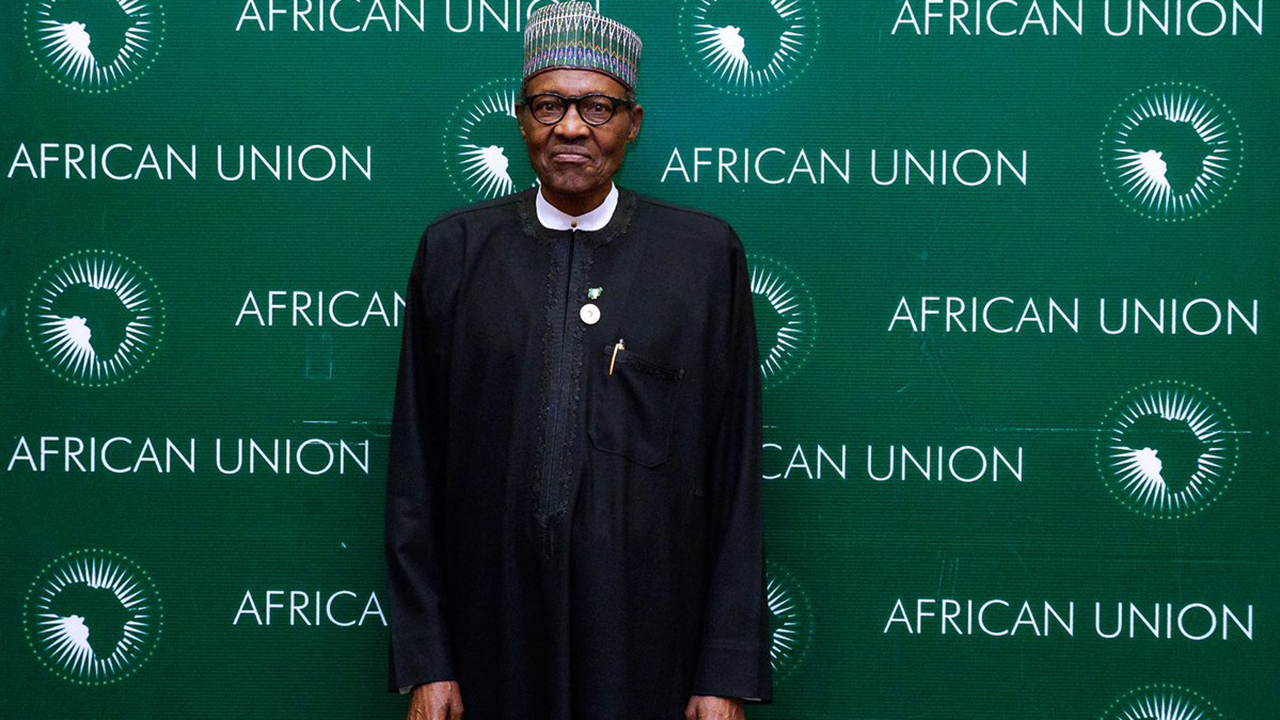
Photo TWITTER/NGRPresident
On the 2nd of February 2018, the president of Nigeria signed an executive order ostensibly to promote science and technology acquisition and the participation of local companies in government procurement activities.
In addition to the government’s happiness with itself on the matter of the executive order, many newspapers have cited the approval of many industry watchers.
However, it is not quite clear what exactly the executive order mandates or changes, with several and often conflicting interpretations having been reported since the decree.
There is the initial question of the constitutional basis for executive orders, especially under the Nigerian constitution. There is the further question of the status of executive orders and where the order of precedence lies compared to Acts of the National Assembly.
While the constitution does vest executive powers in the president, an executive order assumes a legislative flavour. In the absence of specific empowerment by the constitution, does an executive order have validity under Nigerian law? The executive order in question, instructively, only vaguely refers to “the authority vested in” the president and not a specific provision.
[vvideo code=”B37MI48F” autoplay=”yes”]
Following the publication of the order, it was suggested in some quarters that foreign companies would find it harder to do business in Nigeria as a result. This is unlikely to be the case, as the focus is mostly on procurement by ministries and government departments.
The document also appears to be more of a roadmap in certain regards, for example, announcing (rather than ordering) that the Ministry of Science and Technology would establish centres for technology acquisition across the country, the Ministry of Education would encourage the inclusion of Public Procurement Process in the school curriculum and the federal government would provide intervention funds to establish new programmes for emerging technology.
It also announces that the Federal Inland Revenue Service and the Ministry of Finance will ensure that machine tool companies and artisans are granted tax incentives to boost production. Does this expand any of the incentive schemes under current legislation? Is it a firm commitment to grant these incentives?
On a note that brings to mind certain privatisation deals (like NITEL/Pentascope), the order announces a preference for the skill of the management and promoters of a bidding entity over the date of its incorporation.
There are a few superfluous elements of the order, especially regarding the role of the Ministry of the Interior and the National Office for Technology Acquisition and Protection (NOTAP).
The Ministry of Interior already has robust requirements for the issuance of Expatriate Quota to companies for the employment of foreign nationals. These requirements include the skill set not being available in Nigeria and a training programme for Nigerian nationals, which are now ordered by the executive order.
NOTAP also has a robust framework to promote knowledge transfer and prevent capital flight. Similarly, the Local Content Act of 2010 already prescribes many of the measures contained in this executive order, at least in relation to the oil and gas industries. It is not clear what the executive order was looking to change in these instances.
Leaving room for the possibility that I have misconstrued the executive order however, there is the question of how useful a solution it is to the problems it sets out to solve. Surely the crisis that is our science and technology status deserves much more than the throwaway commitment to intervention funds.
We have several institutions of science and technology that have no ground-breaking research or patents to their credit, making it curious that the order requires MDAs to “adopt local technology to replace foreign ones, where they meet set standards.” Would a complete revamp of the sector, including sustainable funding and global exchange programs not be more relevant?
Further, while there is nothing wrong with the principle of Nigerians being the main beneficiaries of government procurement expenditure, developing our technological capacity should start with an objective appraisal of our current capability. There is a reason that these projects require foreign technical partners. There is a reason that the best Nigerian artisans are francophone. Patriotism or favouritism will not of themselves fix the problem, in as much as they were not caused by an absence of patriotic fervour.
At the end of the day, Nigerians just want infrastructure that works, roads that light drizzles will not wash away, assurance of quality when they buy goods or patronise a service. If these measures will bring us closer to that, hurray! If all it will mean is that more ‘Nigerian’ companies (as defined by the order) win more contracts, then the justification of the entire endeavour must be reviewed.
[ad unit=2]






